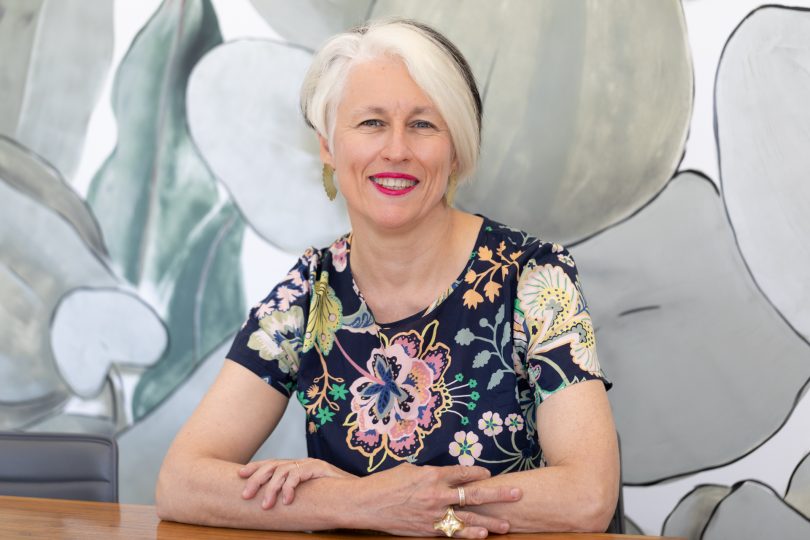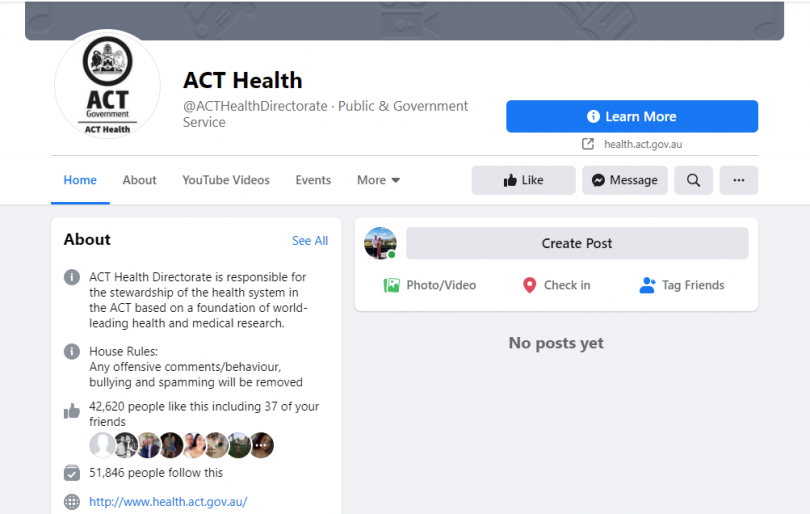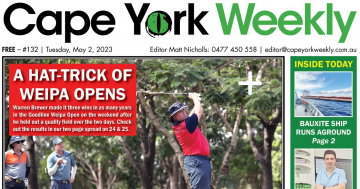
Region Media group editor Genevieve Jacobs says the group is well prepared for social media challenges. Photo: Michelle Kroll.
RiotACT and About Regional readers have woken this morning to depopulated Facebook feeds as the social media giant makes good its threat to ban publishers and Australian users from sharing or viewing any news articles on its platform.
Region Media group editor Genevieve Jacobs says the move is concerning in the midst of a pandemic where social media streams are a vitally important means of sharing health information.
Multiple local Facebook pages, including ACT Health, were down this morning. The Bureau of Meteorology said its “Facebook page has been impacted by the broader Facebook changes” so it was advising users to download the BOM app, use Twitter or its website.
Traffic to Region Media sites are at normal levels today. It appears that people who want to consume local news are coming directly to our sites.
Ms Jacobs says that Region Media‘s carefully managed audience acquisition strategy means that reliance on social media was never of central importance, accounting for less than 15 per cent of site traffic.
“While this is an inconvenience, we still have other channels that drive significant readership and allow people to consume our news. RiotACT content doesn’t sit behind a paywall and is always free, so we encourage people to go directly to our website, bookmark it and read the latest Canberra news, views and opinions,” she said.
“We also have our weekly newsletter, and from now, we’ll introduce a new daily digest email to ensure that people don’t miss the latest local news.”

ACT Health was among the many Facebook pages down this morning. Image: Screenshot.
The move ups the ante in Facebook’s war against the Federal Government’s proposed media bargaining laws.
The bargaining code, which would require social media companies to pay media outlets for using their content, is currently making its way through parliament. It is designed to give publishers some return on their significant investment in the creation of Australian content.
However, Facebook claims the proposed laws create a one-sided process that forces it to pay for news at a level beyond its value.
“The proposed law fundamentally misunderstands the relationship between our platform and publishers who use it to share news content,” William Easton, Facebook’s Australia and New Zealand managing director, said.
“It has left us facing a stark choice: attempt to comply with a law that ignores the realities of this relationship, or stop allowing news content on our services in Australia. With a heavy heart, we are choosing the latter.”
The ban appears to have already come into effect for some users, who are now unable to post links to Australian news articles on their Facebook pages.
The move is likely to spark a backlash among users, and critics say the move could be disastrous for Facebook’s social licence.
Peter Lewis, director of the Australia Institute’s Centre for Responsible Technology, says “without fact-based news to anchor it, Facebook will become little more than cute cats and conspiracy theories”.
Mr Lewis said that “Australians should respond by ending their use of Facebook and using alternative ways to connect online”.
Readers of RiotACT and About Regional can stay informed and up-to-date by going directly to the respective websites.
Region Media has also moved quickly to keep readers informed by offering a daily news digest emailed directly to your inbox. You can sign up for the new email here.
Daily Digest
You can also find RiotACT on Instagram and access our content through the Linktree link or swipe to read our Instagram stories, or follow RiotACT on Twitter.




















